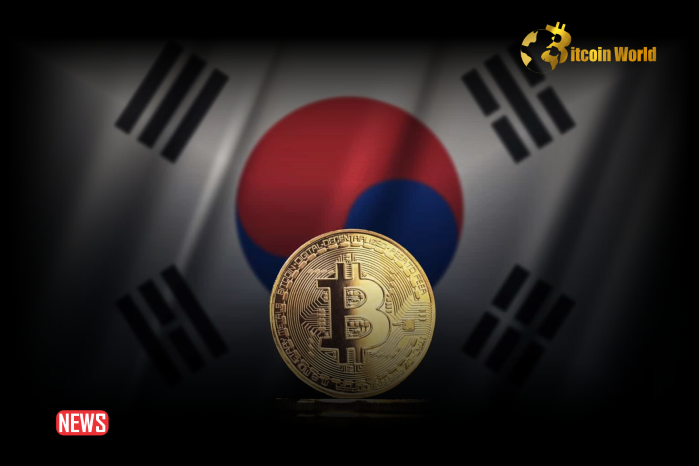South Korea’s cryptocurrency landscape is undergoing a significant shift. Major crypto exchanges like Upbit and Bithumb are now subject to supervisory fees, signaling a new era of regulation and oversight. What does this mean for the future of crypto in South Korea?
What’s Happening? South Korea’s New Crypto Supervisory Fees
The introduction of supervisory fees is part of the newly enforced Virtual Asset User Protection Act. Here’s a breakdown:
- New Financial Obligation: Major exchanges will be required to pay supervisory fees based on their operating income.
- Estimated Cost: Leading exchanges could face fees around 300 million won ($219,992).
- Regulatory Alignment: This move aligns virtual asset operators with traditional financial institutions under the Financial Supervisory Service (FSS).
Unexpected Fees Under New Regulations
The Financial Services Commission (FSC) announced revisions to its regulations on July 1, mandating these supervisory fees for inspections conducted by the FSS starting next year. This brings virtual asset operators under the FSS’s inspection scope, with the contribution determined by the operating revenue of the previous fiscal year.
Here’s a look at estimated contributions based on the 2024 contribution rate:
| Exchange | Estimated Contribution (KRW) | Estimated Contribution (USD) |
|---|---|---|
| Upbit | 272 million | $199,388 |
| Coinone | 6.03 million | $4,422 |
| Gopax | 830,000 | $608 |
Who’s Exempt From Supervisory Fees?
Notably, Korbit is excluded from the supervisory contribution target because its operating revenue was approximately 1.7 billion won ($1.2M) last year. The fee applies only to businesses with an operating revenue of 3 billion won or more, acting as a return for the supervision and services provided by the FSS.
Challenges and Implications
While intended to enhance user protection and regulatory oversight, these new fees pose significant challenges. Many virtual asset exchanges, except for industry giants Upbit and Bithumb, are currently operating at a loss. The supervisory share adds financial pressure to their strained operations.
Despite these losses, exchanges like Coinone and Gopax will still have to pay the supervisory share, adding financial pressure to their strained operations.
Initial industry predictions suggested a delay in imposing these fees. However, the decision was expedited due to imminent inspections by the FSS following the enforcement of the Virtual Asset User Protection Act.
In a related move to comply with the new cryptocurrency user protection laws, a coalition of 20 local crypto exchanges is conducting a comprehensive review of 1,333 digital currencies over the next half-year.
The Bottom Line
South Korea’s introduction of supervisory fees for crypto exchanges marks a pivotal moment in the country’s approach to digital asset regulation. While these fees aim to enhance user protection and align the crypto industry with traditional financial standards, they also present significant financial challenges for smaller exchanges. The long-term impact on the South Korean crypto market remains to be seen, but it’s clear that increased scrutiny and regulation are here to stay.
Disclaimer: The information provided is not trading advice, Bitcoinworld.co.in holds no liability for any investments made based on the information provided on this page. We strongly recommend independent research and/or consultation with a qualified professional before making any investment decisions.




